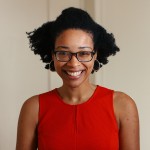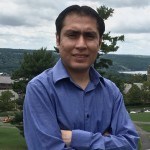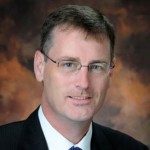SRE is thrilled to introduce our twelve new faculty to the OSU community. Read on to learn more about the ten faculty joining us this fall!

Yongyang Cai earned his PhD from Stanford University, and his research interests include computational economics, integrated assessment models and climate change, environmental and resource economics, and decision making under uncertainty.
Yongyang is a computational and environmental economist. His current research focuses on dynamic and stochastic integration of climate and economics. He has written or co-written 14 peer-reviewed papers published in academic journals, including Nature Climate Change, Proceedings of the National Academy of Sciences, Computers & Operations Research, Journal of the European Economic Association, and Quantitative Economics. Prior to joining the OSU, Cai was a Senior Research Scientist at the Becker Friedman Institute and the Center for Robust Decision Making on Climate and Energy Policy at the University of Chicago, as well as a Visiting Fellow at the Hoover Institution at Stanford University.

Zhenhua Chen earned his PhD in Public Policy from George Mason University and his MA in Regional Economics from the College of Economics at Shenzhen University in China. His research interests include CGE modeling, risk and resilience, and transportation and planning policy.
Zhenhua is an assistant professor in City and Regional Planning in the Knowlton School of Architecture at The Ohio State University (OSU). His research interest focuses on computable general equilibrium (CGE) modeling, risk and resilience, transportation planning and policy. He has a strong background in impact assessments of natural hazards and infrastructure investment policy, and transportation resilience using various CGE models. He is one of the lead developers of the Economic Consequence Analysis Tool, an Excel-VBA software that is intended for policymakers and analysts who need quick estimates of the economic impact of numerous threats, including terrorism, natural disasters, and technological accidents. Before joining the OSU, He was a postdoctoral research associate at the National Center of Risk and Economic Analysis of Terrorism Events (CREATE) at the University of Southern California.

Karen Dannemiller earned her PhD, MPhil, and MS in Chemical and Environmental Engineering from Yale University. She earned her ScB in Chemical and Biochemical Engineering with Honors from Brown University. Her research interests include the indoor microbiome, fungal allergens, human exposure, mold in housing, environmental microbiology, childhood asthma, and DNA sequencing.
Karen graduated with honors in Chemical and Biochemical Engineering from Brown University and earned her PhD at Yale University in Chemical and Environmental Engineering. During this time, she completed an internship at the California Department of Public Health in the Indoor Air Quality Program. Karen’s work improved our understanding of human exposures linked to childhood asthma development and severity. Her research also elucidated resident microbial populations and fundamental transport processes occurring in homes. Her current research is on microbial activity in house dust and biotransformation of phthalates in homes, and she is excited to tackle new challenges as an assistant professor at Ohio State University.

Jennifer Eaglin earned her PhD in Latin American History from Michigan State University, ME in Latin American Studies and International Economics from Johns Hopkins University, and her BA in History and Spanish from Spelman College. Her research interests include energy development in the Americas, alternative energy policy, fuel policy, air pollution, and government policy reform.
Dr. Jennifer Eaglin is an assistant professor of environmental history/sustainability at The Ohio State University. Her research focuses on the development of the Brazilian ethanol industry in the 1970s and 1980s. She completed her doctorate at Michigan State University in Latin American History. She began studying Brazilian energy and development as a Master’s student at Johns Hopkins University-School of Advanced International Studies (SAIS) where she focused on Latin American Studies and International Economics with a specialization in Emerging Markets. Jennifer is a graduate of Spelman College, where she earned her BA in Spanish and History.

Bart Elmore earned his PhD and BA from the University of Virginia, and his BA from Dartmouth college. His research interests include the relationship between big, multinational firms and ecological change. He has closely examined both Monsanto and the Coca-Cola Company.
Bart Elmore is assistant professor of history at OSU and a Carnegie Fellow at New America. Engaging with scholarship on the history of capitalism, Bart recently published a global environmental history of the Coca-Cola Company entitled Citizen Coke: The Making of Coca-Cola Capitalism (W. W. Norton, 2015) and is currently working on a project that examines the ecological footprint of the Monsanto Company. In addition, he has been a contributor to The Huffington Post, Salon, and other popular media outlets.

Jonathan Fresnedo Ramirez earned his PhD from the University of California Davis, and his BS from the Universidad Autónoma Chapingo in Mexico. His research interests include the use of genetics, genomics and engineering for the domestication and optimal genetic improvement of new and neglected crops, mainly focused for the sustainable and resilient production of biomaterials.
Jonathan is Mexican (born and raised) and considers himself an “agrogenetecist” given his interest in applying genetics for the development of agriculture. He has been involved in the study of plant genetic resources since his early days in college. Although his studies started with subtropical species, since 2009, he started a new journey with the breeding of temperate fruits for northern regions, such as peach and grapevine. He is also interested in ethnobotany and economic botany of crops.

John M. Horack earned his MS and PhD in Astrophysics from the University of Alabama in Huntsville, and a BS in Physics and Astronomy from Northwestern University. His research interests include aerospace engineering, astrophysics (cosmology, gamma ray bursts), international collaboration in spaceflight, commercial space development, and space policy.
Dr. Horack’s professional experience in aerospace innovation and leadership dates back to 1987. He currently serves as the vice president of the International Astronautical Federation, was vice president for research at the University of Alabama in Huntsville, achieved the level of Senior Executive Service at NASA’s Marshall Space Flight Center, and most recently served as vice president of Teledyne Brown Engineering’s Space Systems group. At TBE he had responsibility for overseeing all government and commercial space programs, including science, International Space Station payload operations, test support, flight hardware, launch vehicle and component development, and Earth imaging. A native of St. Louis, Missouri, Dr. Horack is also a widely published scientist in the field of gamma ray bursts, having authored or co-authored more than 100 papers and conference presentations.

Eden Lin earned his PhD from Princeton University, his BPhil from the University of Oxford, and his BA from the University of Pennsylvania. His research interests include ethics, mainly well-being.
Before starting at Ohio State, he was an assistant professor of philosophy at Rutgers University, Newark from 2013 to 2016. You can find more about Eden at his webpage, www.edenlin.com

Daniela Miteva earned her PhD in Environment with a specialization in Environmental Economics from Duke University and a BA in Economics and Biology from Bryn Mawr College. Her research interests include coupled human-natural systems, mechanisms of landscape change, impact evaluations of conservation and development interventions, and ecosystem services.
Daniela is an environmental economist working at conservation and sustainability issues in developing countries. Combining a microeconomic framework with theory and tools from ecology and biogeography, her research focuses on understanding the drivers of landscape change, quantifying the impacts on ecosystems and human welfare, and evaluating policies like protected areas and Forest Sustainability Council (FSC) certification. Her research provides insights of why and where human behavior modifies the natural landscapes and highlights the characteristics of the optimal policy that promotes economic development and conservation of species, habitats, and ecosystem services. Daniela holds a PhD from Duke University, NC and has spent the past 3 years a postdoctoral associate at The Nature Conservancy, working on qualifying the tradeoffs between agricultural profit, ecosystem services, and biodiversity in Brazil, analyzing the drivers of forest loss on the Yucatan Peninsula in Mexico, and examining the heterogeneity of the impacts of FSC in Indonesia.

Mark H. Weir earned his PhD in Environmental Engineering from Drexel University, and his BS in Environmental Engineering from Wilkes University. His research interests include risk analysis specifically quantitative microbial risk assessment (QMRA). “I specialize in microbial dose response modelling and quantitative microbiology for exposure assessment and modelling. I am interested in developing new integrative insights into how to develop QMRA models in a truly trans-disciplinary fashion thus allowing for fast implementation of the models. I focus primarily on drinking and wastewater, which include water reuse.”
After completing his BS in Environmental Engineering and working locally and internationally, Dr. Weir desired to expand his skills in water distribution hydraulics and treatment in a more public health orientation. Mark worked under the mentorship of Dr. Charles N. Haas at Drexel University on quantitative microbial risk assessment (QMRA) and complex system modeling. Mark focused his dissertation on a first of its kind advanced dose response model for inhalational anthrax and between his dissertation and other research at Drexel started the second generation of microbial dose response models. Mark worked as a Visiting Research Associate and Associate Director of the Center for Advancing Microbial Risk Assessment (CAMRA) under the mentorship of Dr. Joan B. Rose at Michigan State University (MSU). While at MSU Mark developed his engineered and environmental systems modelling skills further and with his wife Dr. Joanna M. Pope opened their business CAMRA Consultants LLC., an engineering and risk sciences consulting firm. After spending a year as an Environmental Engineer with the Office of Water at the Environmental Protection Agency headquarters in Washington DC, Mark accepted a faculty position at Temple University in Philadelphia, PA. While at Temple Mark served as the Acting Division Director for the Environmental Health Sciences Division, College of Public Health. While at Temple Mark directed the Division and developed his research in quantitative microbiology within the water industry while also teach and reaching out the community to work with the Philadelphia Water Department and various community groups. Mark also strengthened his international collaborative network, engaging in research with poor communities and underserved locations in: Argentina, Australia and Brazil. Upon coming to The Ohio State University, College of Public Health, Mark is interested in continuing his involvement of the local community and utilities in his research and exploring the ways that fundamental and applied research can be used to improve human health and overall community sustainability in Columbus and worldwide.